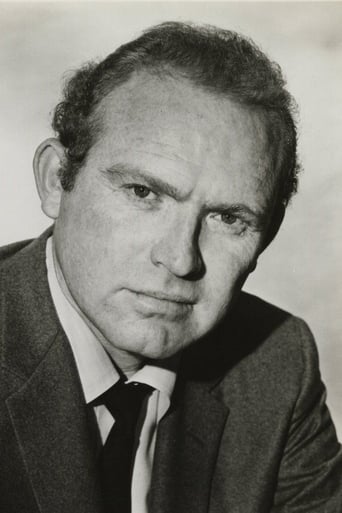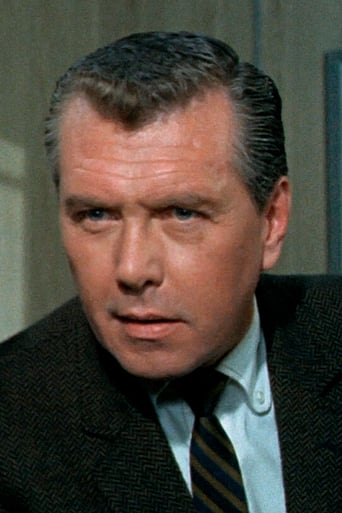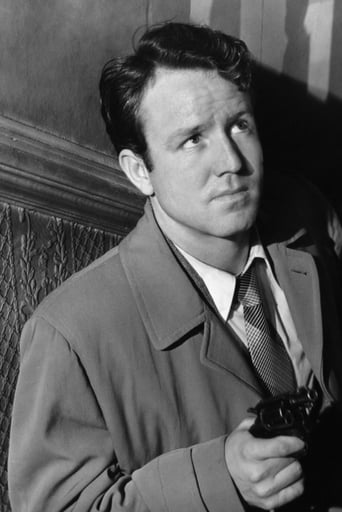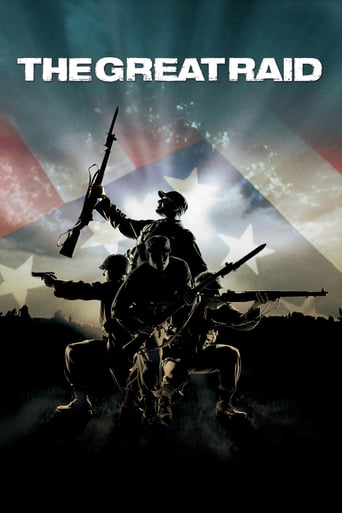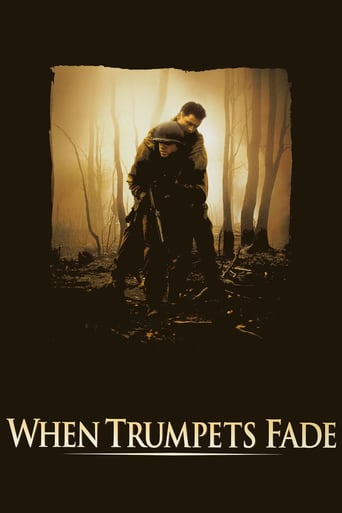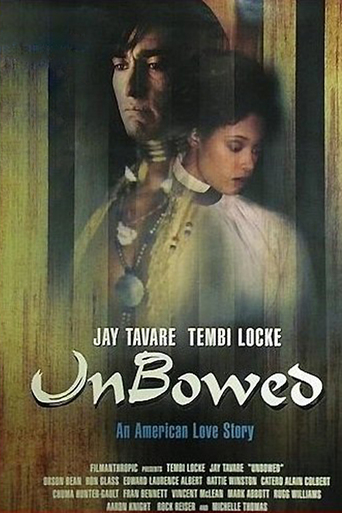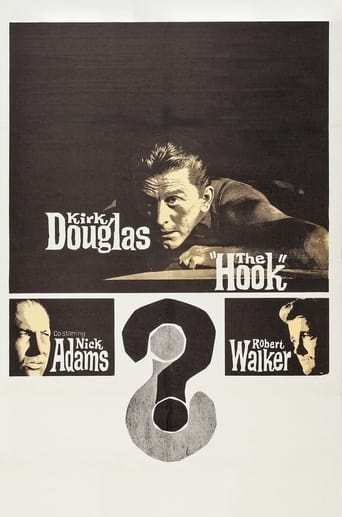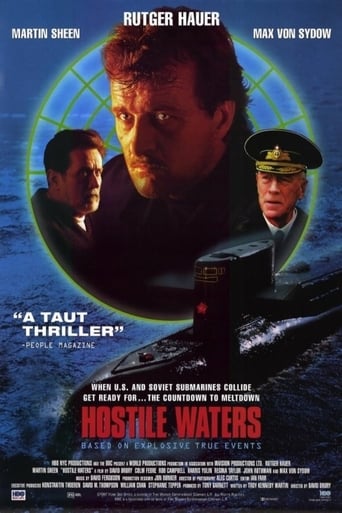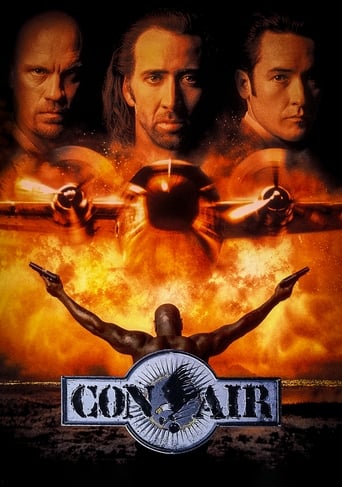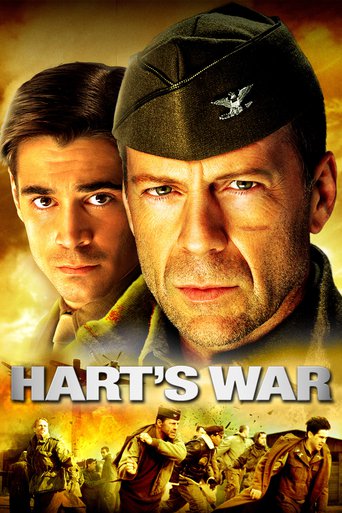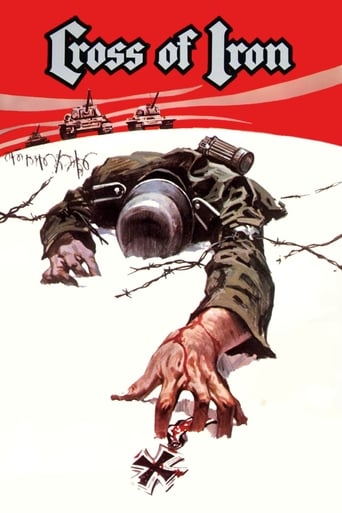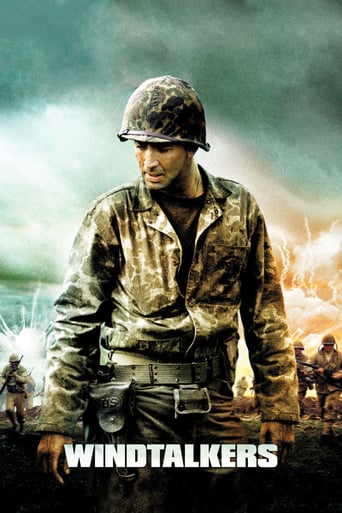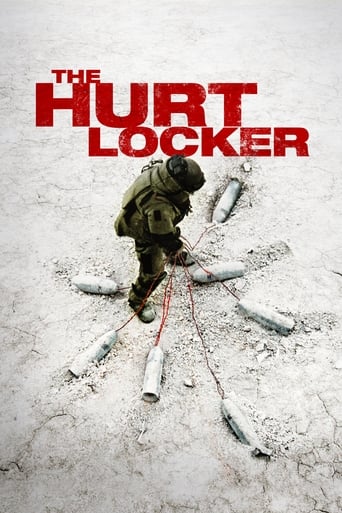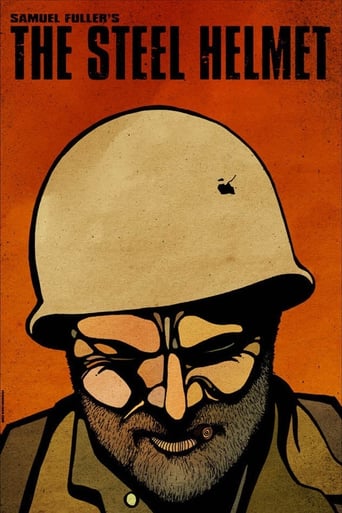
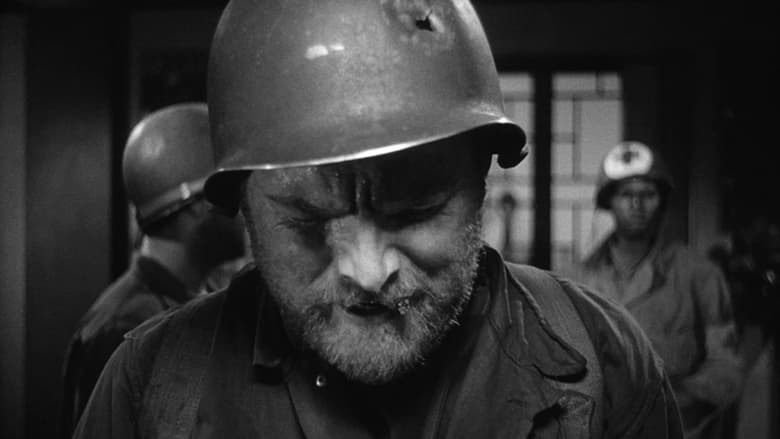
The Steel Helmet (1951)
A ragtag group of American stragglers battles against superior Communist troops in an abandoned Buddhist temple during the Korean War.
Watch Trailer
Cast


Similar titles
Reviews
Rescued by a young South Korean lad, the sole survivor of a massacred platoon huddles with other stranded soldiers at an abandoned Buddhist temple behind enemy lines in this powerful Korean War drama directed by Samuel Fuller. The film is gripping right from the opening close-up shots of lead actor Gene Evans cautiously looking over a bunker while 'the enemy', viewed only from the waste-down, approaches. Fuller does a great job visualising the film throughout though. Especially notable is how low camera angles are initially used to portray the temple as a mystic place of wonder when Evans and his fellow soldiers first arrive -- shots that have an eerie contrast against the daunting high camera angles Fullers later opts for when it is revealed that there is a sniper hiding there. With less dialogue (and none of that haunting voice-over), 'The Steel Helmet' is less philosophical that Fuller's follow-up Korean War pic 'Fixed Bayonets!', however, the sparse dialogue still amply portrays the mood and unease of the soldiers as they contemplate why they are fighting and dissociate dead bodies from those who were only recently alive. Evans is remarkable in the lead role too; initially he seems cynical and hateful towards everyone, but as the film progresses, we see beneath his thick skin. War truly affects even the more hardened men out there. It is thoughtful stuff, and the fact that the majority of the grisly action occurs at a place of worship is a bitter irony if there ever was one. Nothing is sacred in war and there is no sanctuary for those fighting.
Hardly a classic but a good war drama nonetheless.Set in the Korean War, a grizzled veteran sergeant is the sole survivor of an American patrol that has been ambushed, taken prisoner and massacred. He links up with a medic and a South Korean child and, ultimately, a US infantry squad. The squad set up camp in an abandoned temple that had strategic value as an Observation Post...Decent, but not great. Fairly gritty and realistic but also quite clumsy. Dialogue and sub-plots are a bit lame at times. Performances vary too. No real standouts, though Gene Evans is solid as Sergeant Zack. William Chun is very unconvincing as the Korean kid, though, at least is not irritating (unlike many child characters).
When viewing The Steel Helmet I had to keep reminding myself that this was made and shown to audiences while the Korean War was actually in its earliest stages. Writer-Director Samuel Fuller smartly depicts the relationship of an American soldier and a Korean boy in a non-stereotypical, yet poignant way. Needless to say, it is devastating when the boy is killed in the line of fire. There are some loose ends in this picture, though, that leave the viewer with unanswered questions. For example, it may have helped to know more about what led one of the characters, a conscientious objector, to eventually join the military. Also, viewers would probably like to know what it was like for the black medic to get drafted. His lines regarding segregation and sitting on the back of the bus give us a unique window into another culture. He has come upon foreign land with the hope that civil rights are not only valued back home in the U.S., but also in an Asiatic battlefront threatened by the encroachment of communism.
Samuel Fuller's first great hard-boiled war movie doesn't seem to strike up the same controversy that it apparently did back in the 1950s. Maybe an extra fifty-five years of the United States becoming more liberal in certain stances, such as where black people can sit on a bus or if the Japanese internment camps were such a good idea, has changed the film in a certain respect. But what hasn't changed is Fuller's immediate sense of danger and drama, of the tough bond between soldiers in combat, and what it means to be patriotic in the face of the grittiest odds. I also found it a fascinating feat, especially this early in Fuller's career, to set up not only a quasi-prototype of the Fuller bad-ass that would continue on in many of his films (one definitely would see a form or two of this in the Big Red One), but criticizing this figure. And meanwhile Fuller pumps up his war film with a staggering showcase of horrific war violence which, up until the climax, is largely off-screen with only the sound effects of bullets streaming fast meant for emphasis, and the camera acting as a real presence in the room during the temple, acting as exclamation pointer and a tool for the suspense.The Fuller figure in the film, which ends up becoming the central one even amid the ensemble, is Sgt. Zack, with his scruffy beard, hard talk, and odd principles ("best in the infantry", Zack says, as you either live or die). But of all things, Fuller uses a little Korean boy, who sings the entire Korean national anthem- also Audl Yange Syne- and has a deep belief in Buddhist traditions. It's not any kind of little gimmick to garner the audience's sympathies, however, and by not calling too much attention to it there's strength in Zack's very subtle change by the end of the film. He's still going to be a bit of a brutish guy who may let his emotions get the better of him, and charges onward even when thinking he's the only real tough guy in the army. But Fuller seems to not be making him a real true-blue hero in the John Wayne sense: he's a lot more of a complicated tough-guy protagonist, who played by Gene Evans plays him convincingly as a man who's principles of strength on the battlefield get mixed up when his conscience enters into things. He remains one of Fuller's coolest and a benchmark in B war movie characters.What's so strange about the Steel Helmet ends up being how it uses so much on a minuscule budget. Shot in ten days, Fuller structured the script mostly as if it was a stage play; 2/3 of the film is set in the temple, as the characters stay low, get a run-in with a North Korean infiltrator, try and fix a radio, and generally have a lot of talks about what it is to fight in war and whatnot. It's never boring for second, even as one might wonder when, like in Night of the Living Dead, the ominous forces of the outside will come in and break up the monotony of suspense. I loved little moments like when the one soldier thinks his grenade is about to explode right on his belt if he stands up, or when Zack describes who he'd let wear his helmet based on an insane D-Day story, or when the radio operator started growing hair. Even dialog that should be dated when the North Korean asks the black soldier about discrimination in America comes off as interesting. And then, suddenly, Fuller will whip up the camera and editing into a sharp frenzy when it comes time for battle, or make it as something to almost keep the soldiers themselves on their toes. And it's something to admit as fearless to have only a hand-full of extras and a handful of special effects to make a battle scene just as great as anything in the Big Red One- which are some of the best war battles in film history.A real 'guy' movie that doesn't kid its own nature about men from varying cultures all plopped together in an insane conflict, with quick flashes of humor and sudden, unexpected violence, and a final message on the title card that will resonate long as men carry big guns and wear those helmets.


